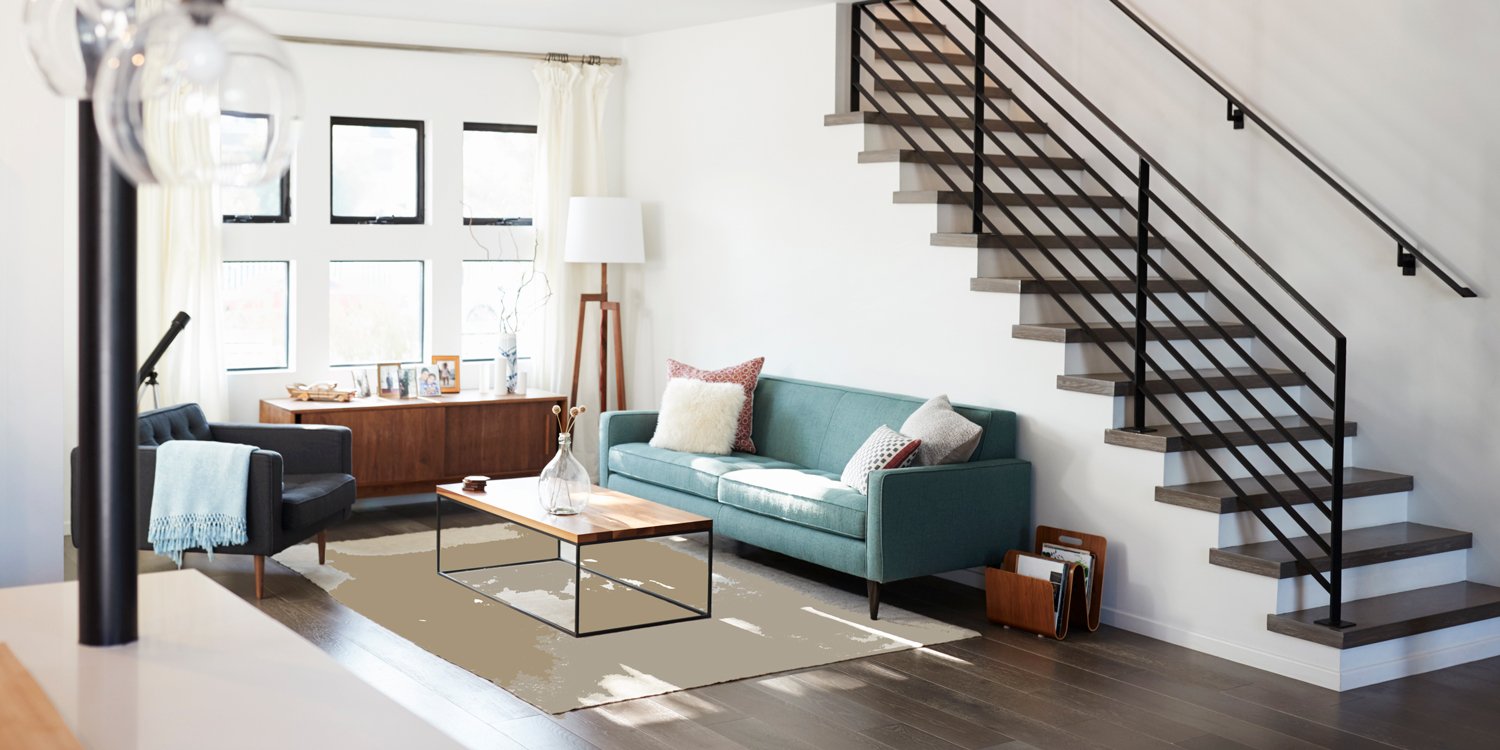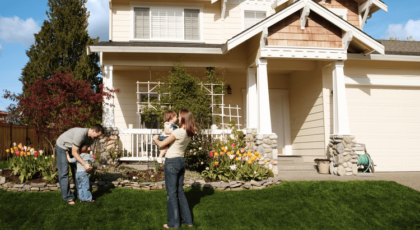You’ve heard of “aging in place,” but who wants to get old? We prefer to live! And that’s the concept behind the Living In Place Institute, a worldwide network of educators, contractors, and builders working together to make all homes safe, healthy, and comfortable.

We had a chance to chat with co-founder Erik Listou, who shared with us the history of the Institute and offered a few practical ideas to improve safety and wellness in our homes. Established in 2013, the Living In Place Institute began with a vision to make all homes safer through awareness, education, and training. While the housing industry has long recognized some of these needs, most of the programs that existed before were limited to aging in place. The Institute’s approach is not about aging, it’s about living in your home, regardless of age or ability.
So what can we do right now to improve the overall safety of our homes for today and the future? Read on for four of Listou’s recommendations.
COLOR CONTRAST
Medical experts have helped us better understand how color differences trigger depth perception. So to encourage stable footing, you want to use high contrast or low contrast colors in the appropriate places. When it comes to flooring, if there is a change in height (a step down into a sunken living room, or up into an elevated dining room, for example), then you want to use materials with a high contrast so that your subconscious brain knows to automatically adjust your footing faster than you could consciously make the decision. High contrast colors are also useful in spaces you want to call attention to, like a handrail, the corner edge of a countertop, or stairs, as shown below.
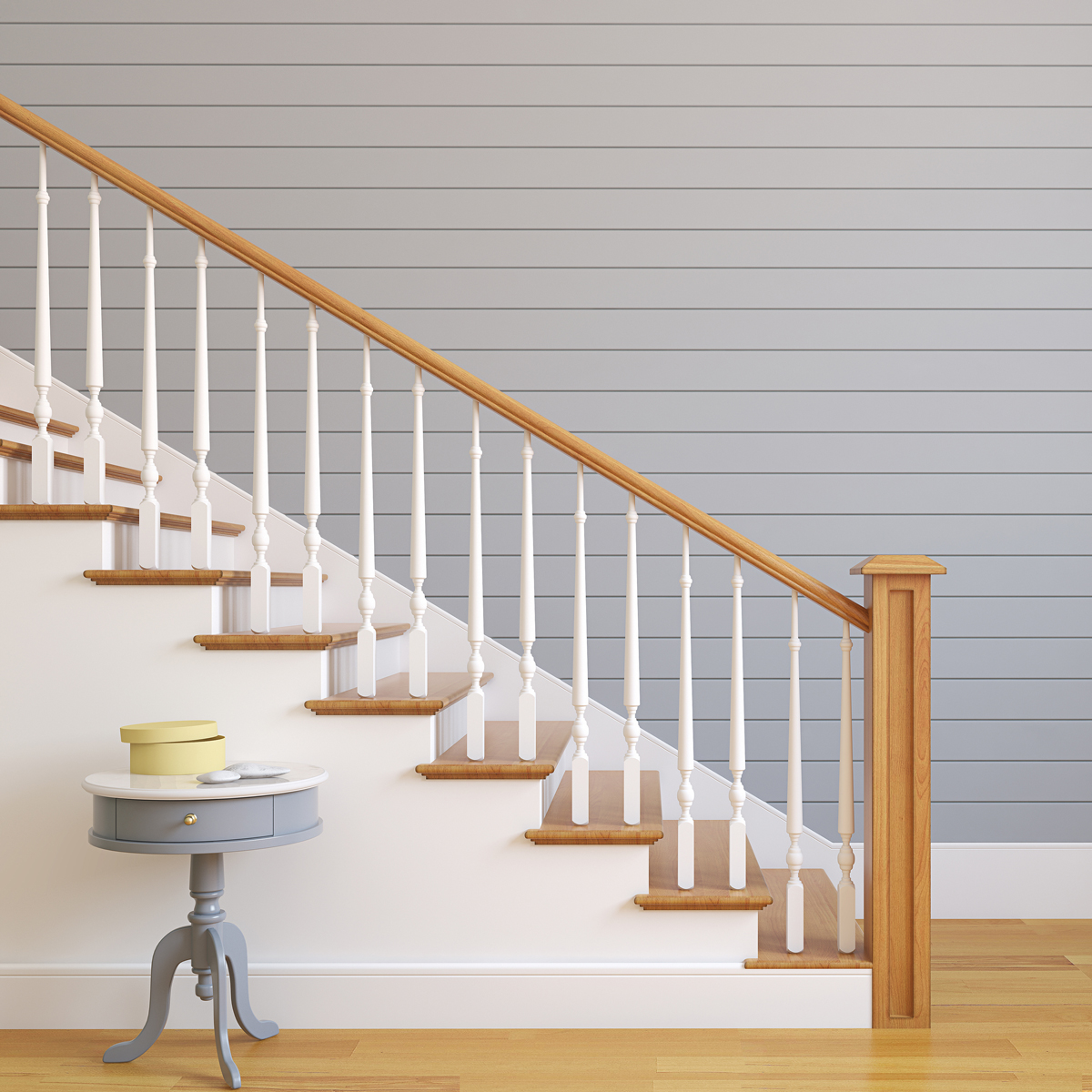
Conversely, if the flooring is on the same level plane, you want to use low-contrast colors or materials like the jute rug and wood flooring shown below. Otherwise your brain will again automatically signal for you to adjust your footing, potentially causing a misstep or fall.
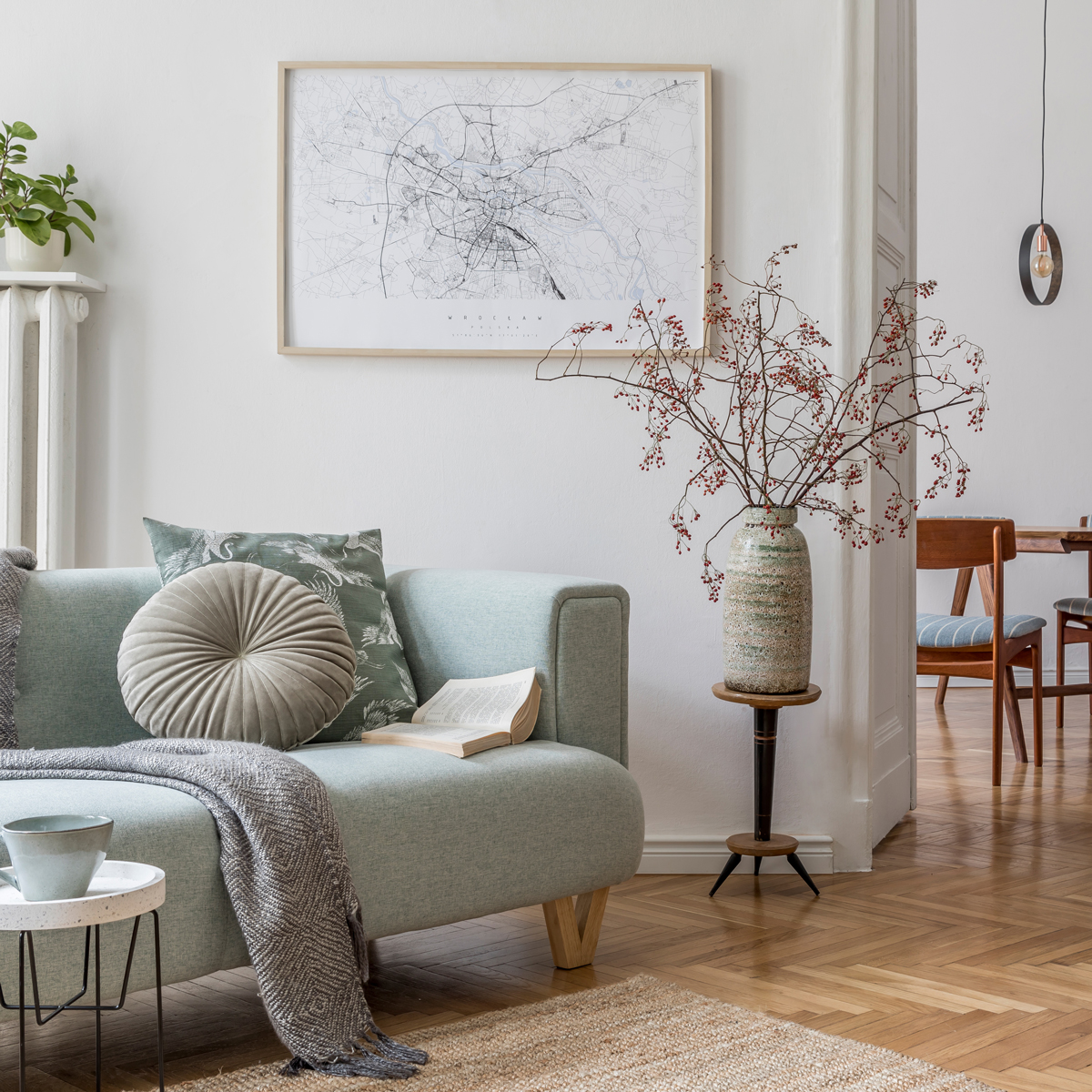
KITCHEN CABINETS
The rule of thumb is simple: To safely reach objects, nothing should be placed above the nose or below the knees. So how do we make the best use of floor-to-ceiling cabinets? The cabinet organizing industry (yes, that’s a thing!) now offers devices that can be installed in most cabinets that either lower or raise the cabinet insides, so everything is easier to reach. Seriously cool. Another easy and inexpensive addition? LED lights inside your cabinets (to illuminate those forgotten chips hiding in the back). There are also many options available for those who are only able to access lower cabinetry.
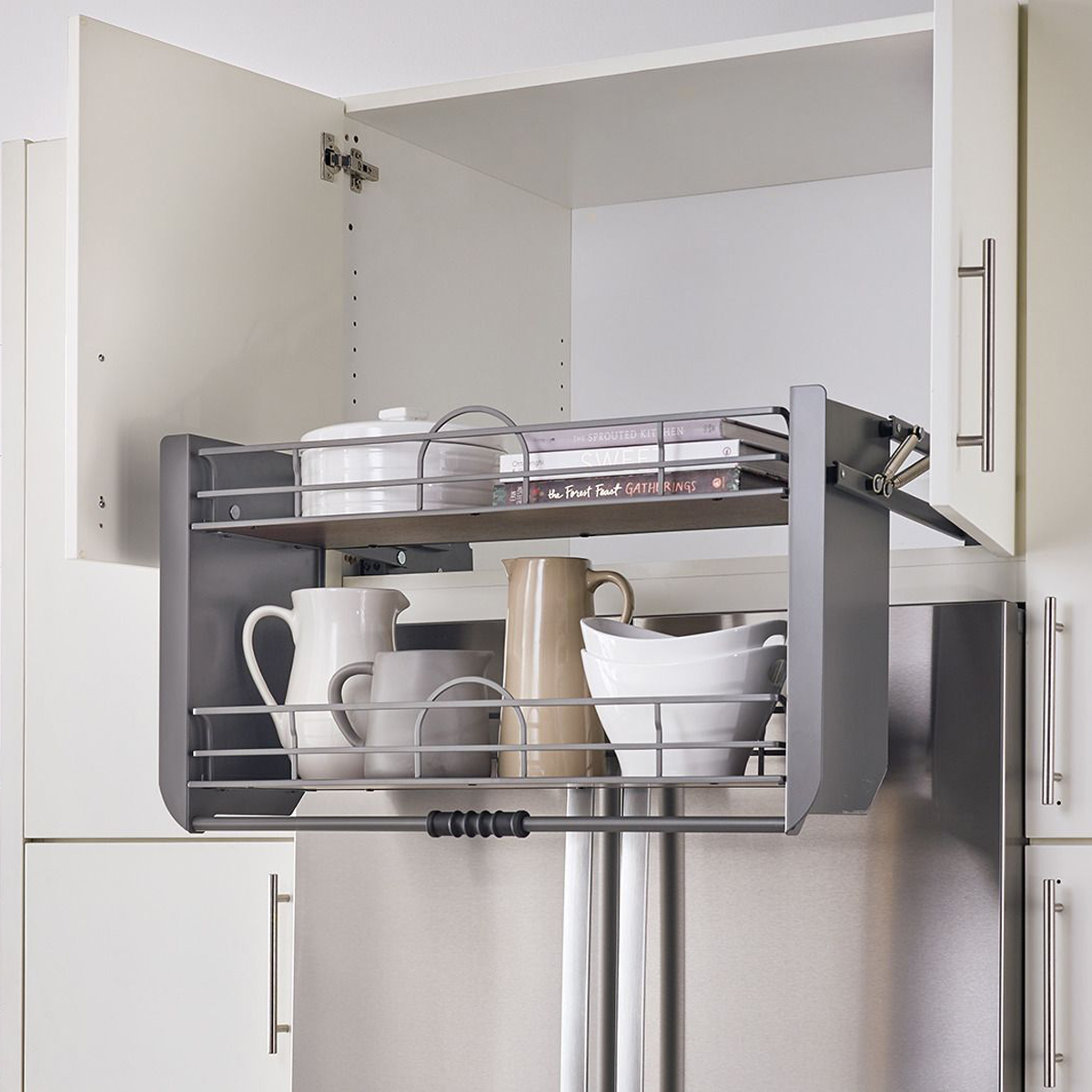
TOILET SEATS
Rarely do we place the words luxury and toilet seats in the same sentence, but today’s toilet seats truly are luxurious. There are various options, but the full-featured models include self-raising lids, heating, washing, and sanitizing. Medical professionals encourage their use for everyone regardless of gender or age, citing the reduction in infections and ease of use. These automated toilet seats replace your existing toilet seat, and any licensed electrician will be able to add the proper electrical outlet behind your toilet. While you’ve already got a pro there, ask them to also install an outlet under each sink so that you can add voice-controlled faucets.
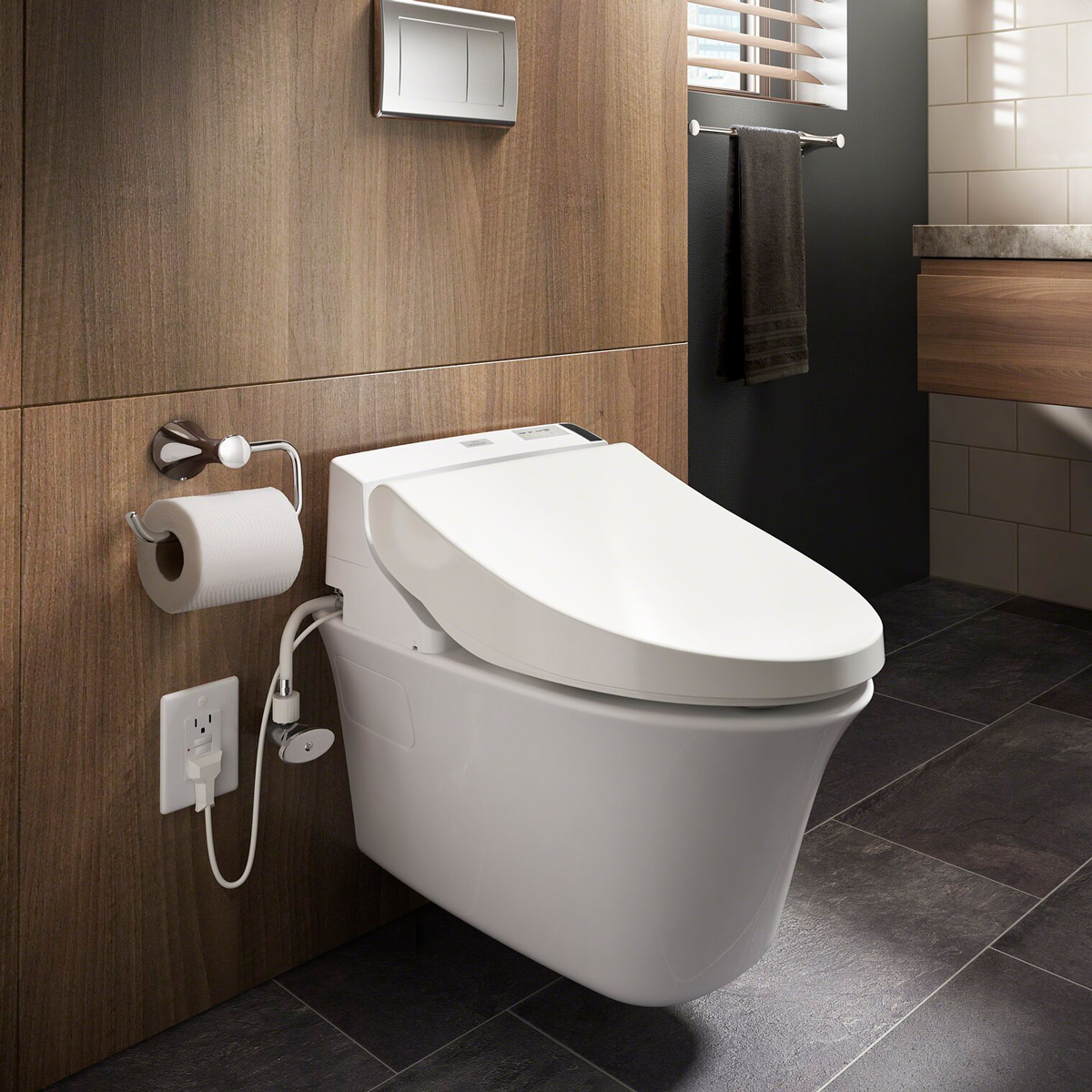
TOWEL BARS
According to the Vision Council of America, approximately 75% of adults use some sort of vision correction. We often aren’t wearing our glasses or contacts in the bathroom, which can leave some of us a little wobbly. For an added level of safety, it’s smart to install towel bars that can hold at least 250 pounds of weight, should someone need to steady themselves. A vertical bar in the shower or tub entry (a great idea for pregnant women!) is also smart. There are plenty of sleek options that you can match to your existing decor.
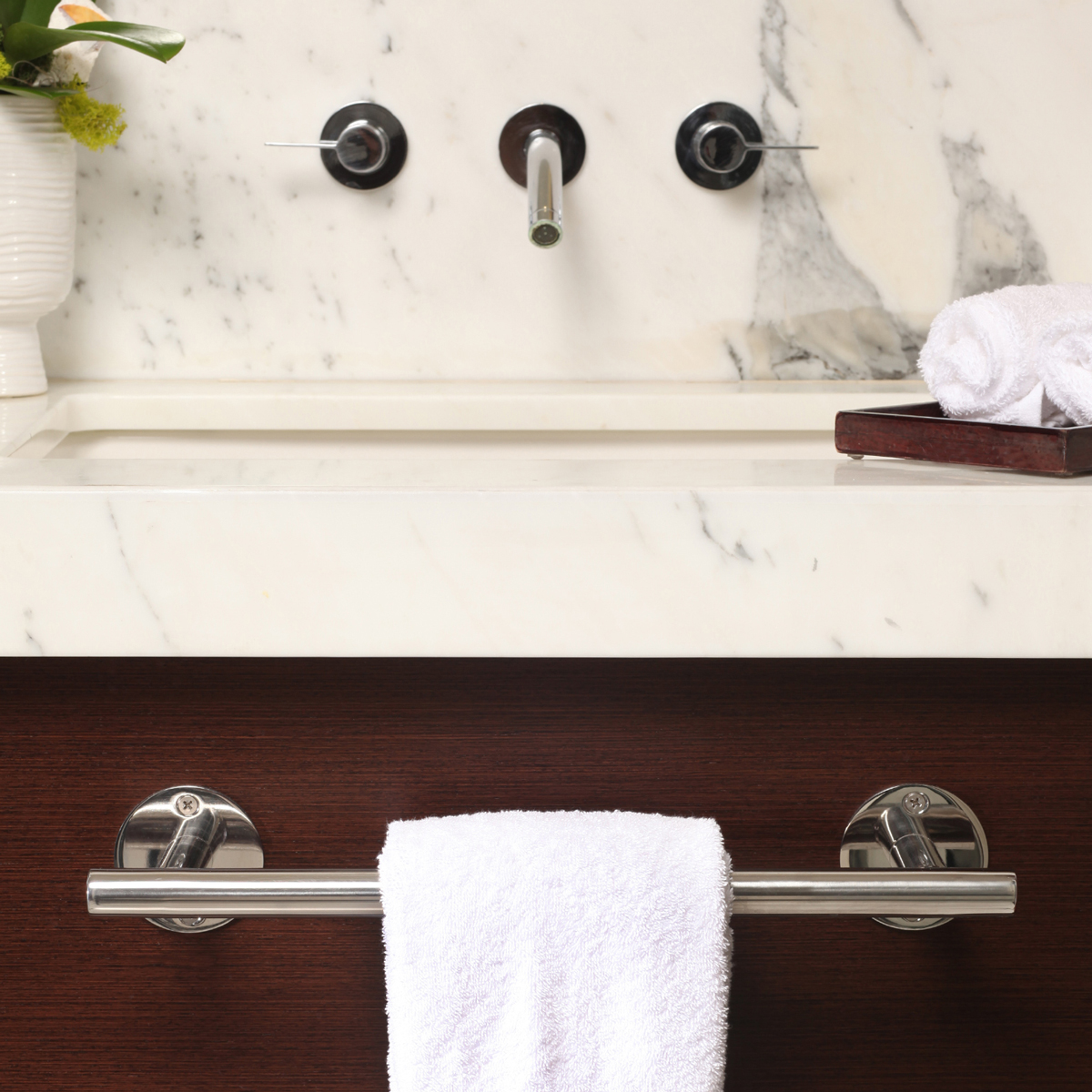
To learn more helpful tips for making your home safe and comfortable, visit LivingInPlace.Institute.
We shared this article with you in the Spring/Summer 2021 Issue of NEST Magazine. To view the full issue, click here.
Written by Aaron H. Bible on July 8, 2021
-
Don’t Miss This Prime Spring Window To Sell Your House
According to Realtor.com, the best week to list your house this year was April 13–19. Continue reading -
4 Ways To Make an Offer That Stands Out This Spring
Now that spring is here, more and more buyers are jumping back… Continue reading -
The #1 Thing Sellers Need To Know About Their Asking Price
When you put your house on the market, you want to sell… Continue reading -
Paused Your Moving Plans? Here’s Why It Might Be Time To Hit Play Again
Last year, 70% of buyers abandoned their home search – and maybe you were… Continue reading
